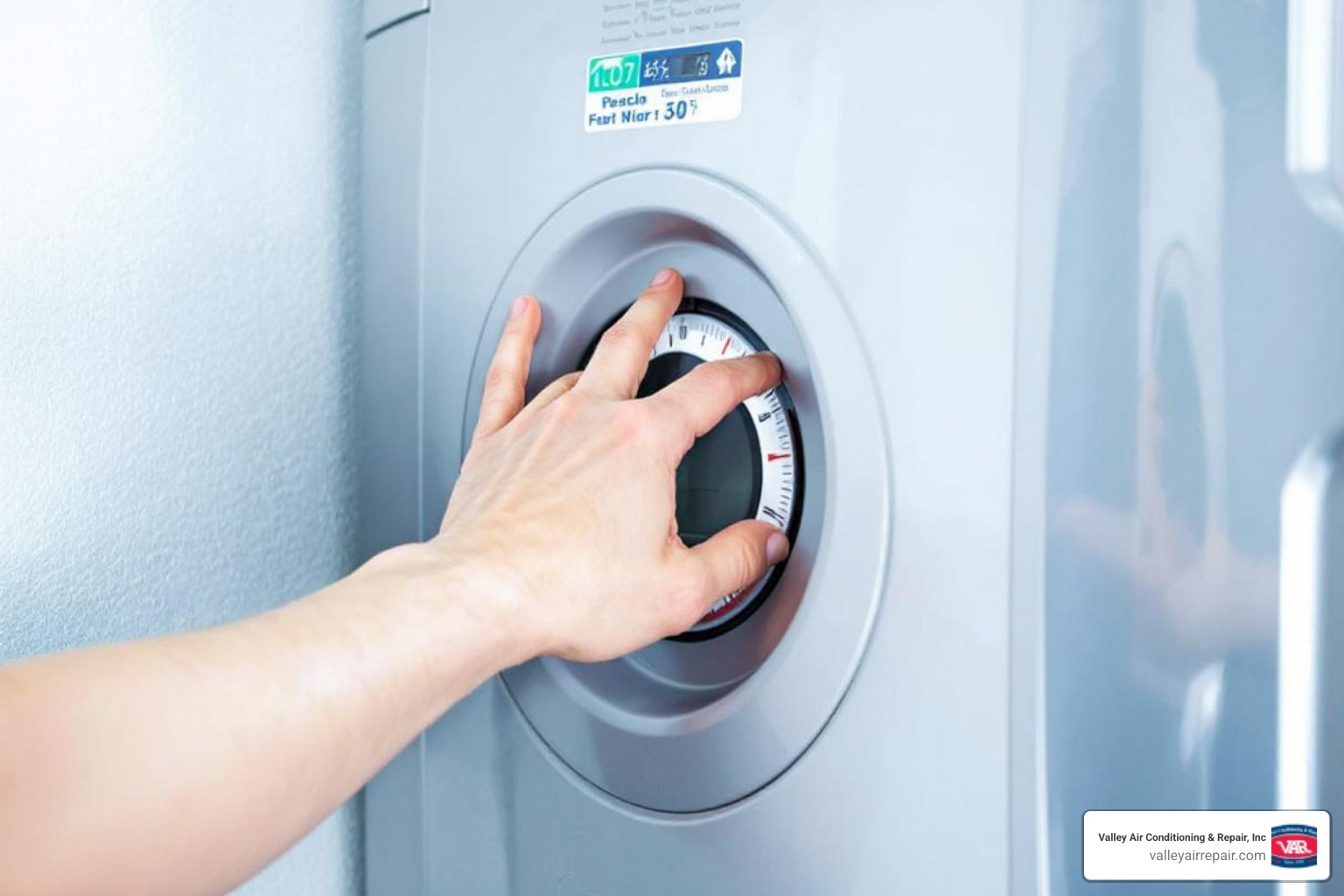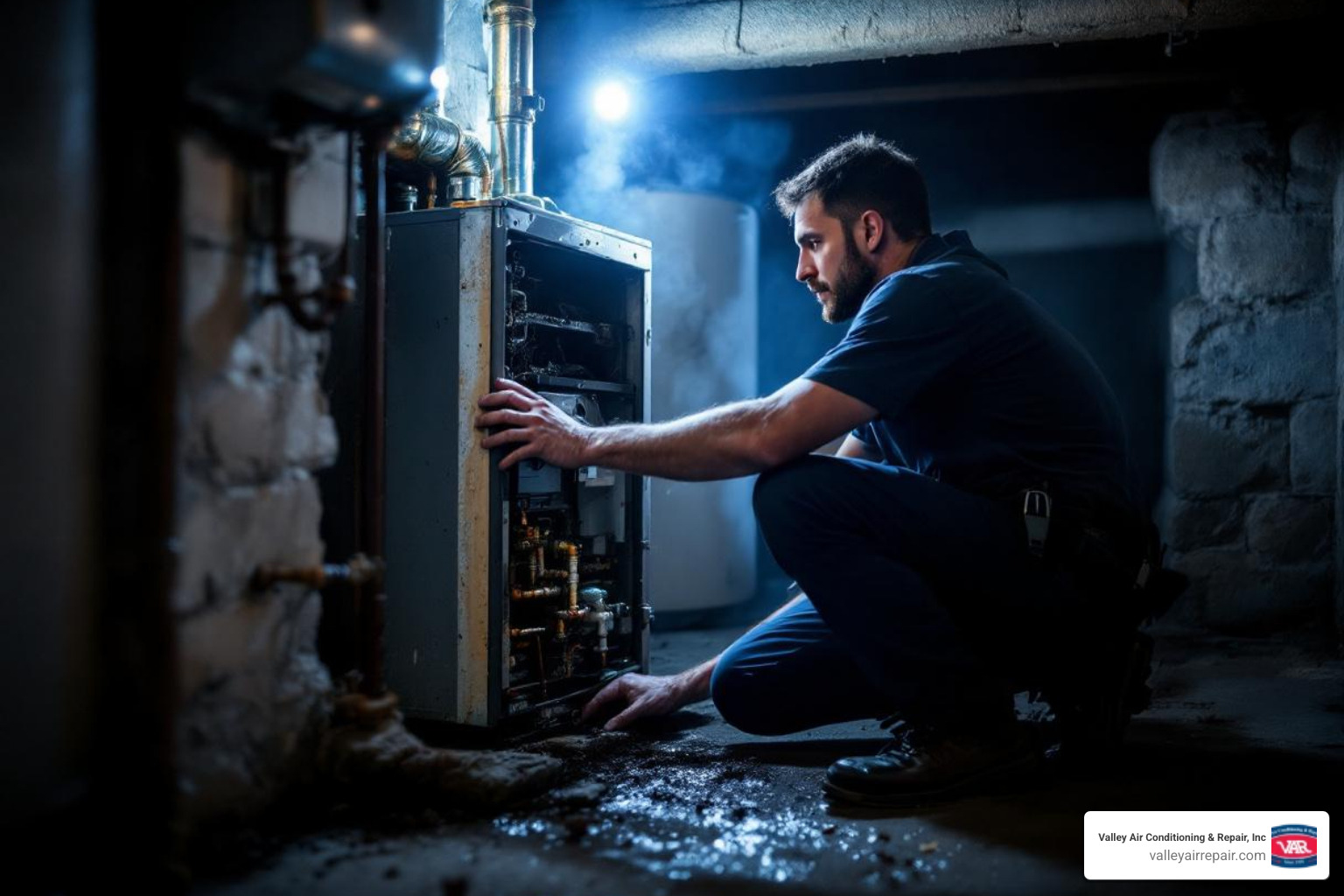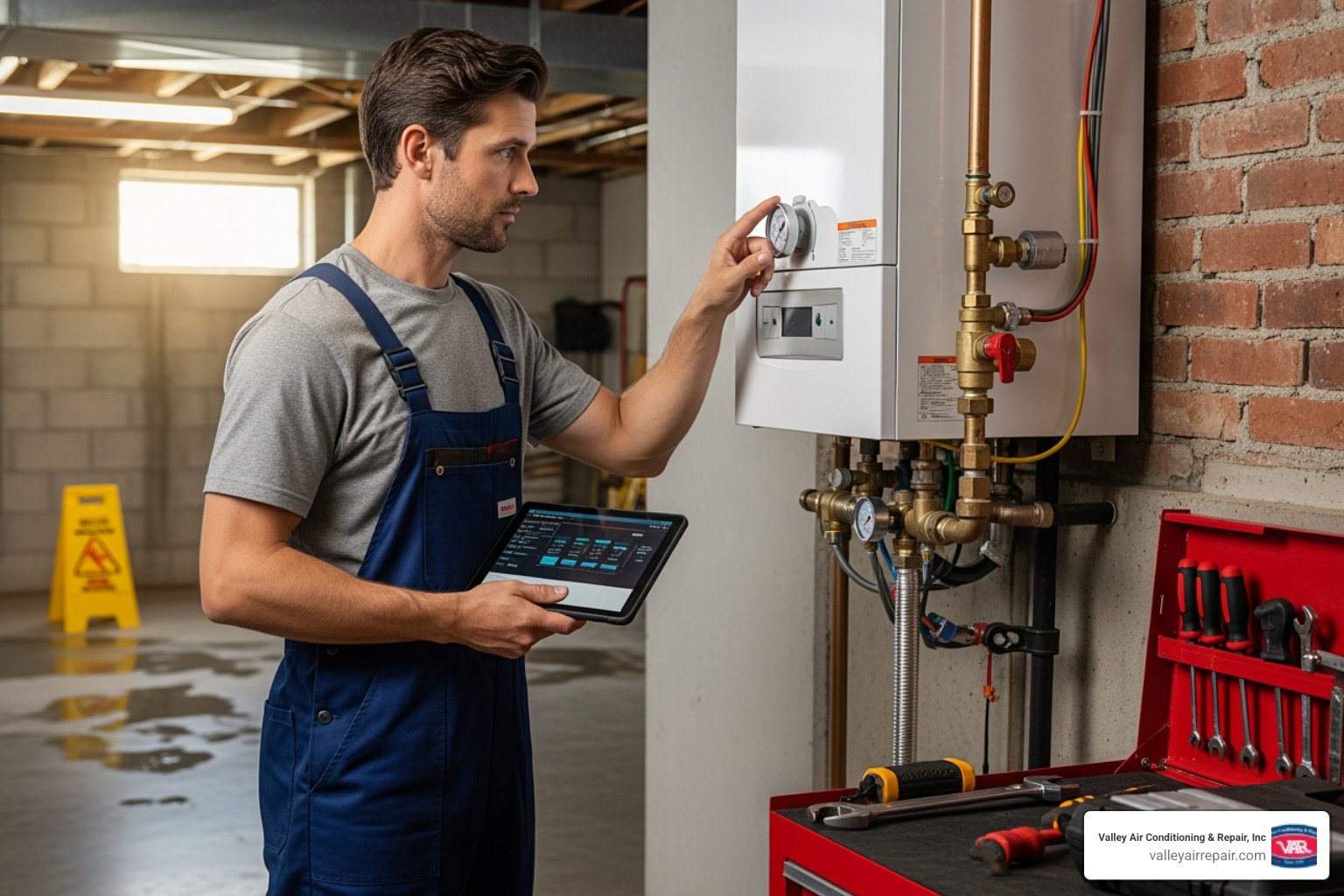Don't Get Burned: Smart Ways to Save on Water Heating Costs
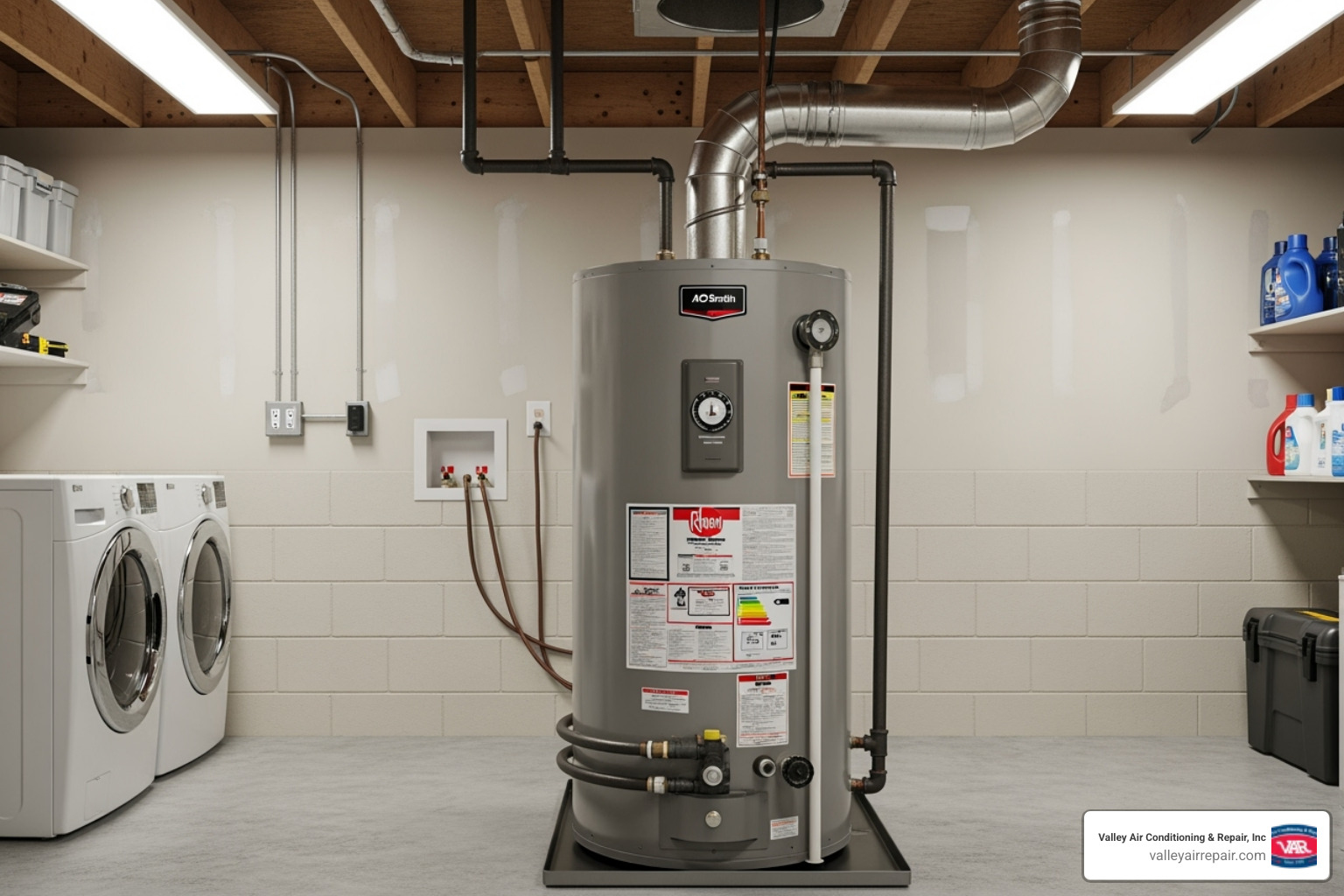
Why Water Heating Costs Matter to Your Wallet
If you want to save money water heater costs are eating into your budget, you're not alone. Water heating accounts for about 18% of your home's energy use - making it the second largest energy expense in most homes after heating and cooling.
Quick ways to save money on water heating:
- Lower your thermostat to 120°F (saves 3-5% per 10°F reduction)
- Take shorter showers and fix leaky faucets
- Insulate your tank with a water heater blanket (25-45% reduction in heat loss)
- Upgrade to ENERGY STAR models (save 9-50% depending on type)
- Consider tankless or heat pump systems for long-term savings
- Install low-flow fixtures to reduce hot water demand
The good news? You don't need to replace your entire system to see real savings. Simple changes like adjusting your thermostat or adding insulation can cut your water heating bill immediately. For bigger savings, upgrading to an efficient model can save hundreds of dollars per year.
Whether you're looking for quick wins or planning a major upgrade, there are proven ways to reduce your water heating costs without sacrificing comfort.
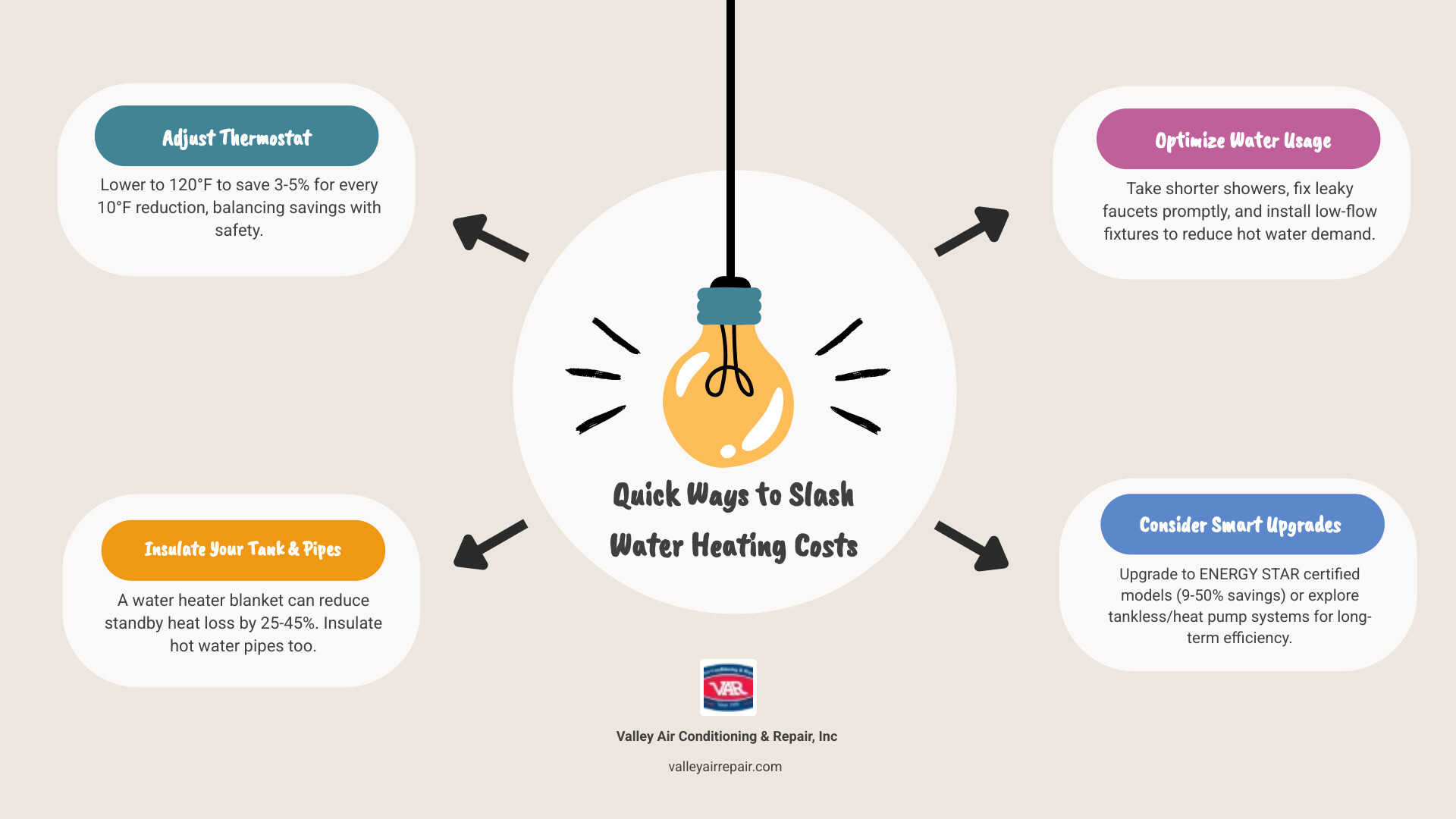
Quick Wins: No-Cost and Low-Cost Ways to Slash Your Bill
The best part about wanting to save money water heater costs? You don't need to break the bank to see real results. Some of the most effective changes cost absolutely nothing – just a few minutes of your time and maybe a small adjustment here and there. These are the kind of wins that make you feel pretty smart when you see your next energy bill.
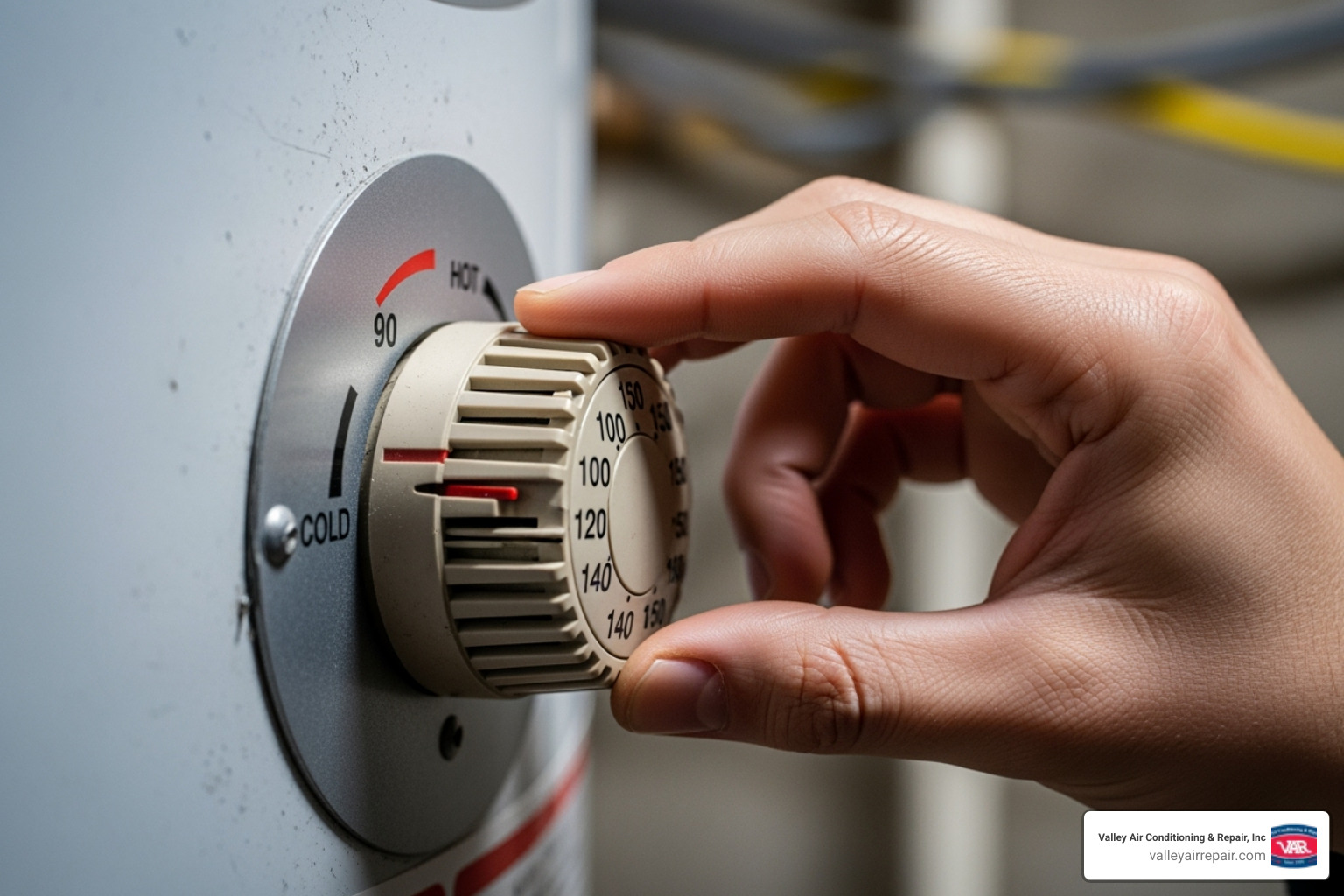
Adjust Your Thermostat and Water Usage
Here's something that might surprise you: most water heaters come from the factory set way hotter than you actually need. We're talking 140°F or higher – hot enough to seriously burn you in just a few seconds. The sweet spot for most homes? 120°F.
Making this simple adjustment can save you 3-5% on your water heating costs for every 10°F you turn it down. That might not sound like much, but it adds up quickly when water heating is nearly a fifth of your energy bill. Plus, you're doing your pipes and tank a favor by reducing mineral buildup and corrosion.
Why 120°F works so well comes down to balance. It's hot enough to prevent Legionella bacteria from growing, but not so hot that it creates a scalding hazard for kids or elderly family members. The only exception might be if you have an older dishwasher without its own heater – those sometimes need hotter water to clean properly.
Now let's talk about the fun stuff – changing how you use hot water without feeling like you're roughing it. Shorter showers are the obvious win here, but even cutting just a few minutes off your usual routine makes a difference. Some folks get creative and turn off the water while they shampoo or soap up. It feels weird at first, but your wallet will thank you.
Cold water laundry is another game-changer. Modern detergents work great in cold water, and you'll be amazed how much energy this saves. The same goes for running full loads in your dishwasher – these machines use the same amount of hot water whether they're packed full or just have a few dishes rattling around.
Don't ignore those leaky faucets either. A single drip might seem harmless, but it can waste hundreds of gallons over a month. When it's hot water dripping away, that's literally money going down the drain. Use this drip calculator to see how much a leak costs – the numbers might shock you into finally fixing that annoying drip.
Low-flow fixtures are worth mentioning too. If your showerheads and faucets are from before 1992, they're probably using twice as much water as newer ones. Swapping them out can cut your water use by 25-60% without making your shower feel wimpy.
DIY Insulation: An Easy Way to Save Money on Your Water Heater
Think of your water heater like a big thermos. If that thermos isn't properly insulated, your coffee gets cold fast – and you're constantly reheating it. Same principle applies to your water heater, except instead of cold coffee, you're dealing with standby heat loss that shows up on your energy bill every month.
Here's a simple test: touch your water heater tank. If it feels warm, heat is escaping and you're losing money. A water heater blanket can reduce this heat loss by 25-45%, potentially saving you 7-16% on your annual water heating costs. The best part? This project typically pays for itself within a year.
Most water heater blankets have an R-value that provides excellent insulation. If your tank doesn't already have insulation with an R-value of at least 24, adding a blanket is a no-brainer. Many utility companies offer rebates or sell these blankets at reduced prices, making it an even sweeter deal.
Pipe insulation is the perfect companion project. Wrapping the first six feet of both hot and cold water pipes connected to your heater prevents heat from escaping before the water even reaches your faucets. This simple addition works especially well on older systems.
One important heads-up: water heater blankets work great on electric units, but they're pretty much useless on gas water heaters. Gas units lose most of their heat up the flue, so a blanket won't help much there.
Heat traps are another clever little device worth considering. They prevent hot water from accidentally flowing into cold water pipes and vice versa. It's like having one-way valves that keep your heated water where it belongs.
The DIY guide to insulating your tank from the Department of Energy walks you through the whole process step by step. Just remember to avoid covering any safety labels, controls, or the temperature and pressure relief valve.
If your water heater is getting up there in age and these efficiency improvements aren't cutting it anymore, our team can help with Water Heater Replacement in Fresno, CA. Sometimes the most cost-effective solution is starting fresh with a modern, efficient system.
Upgrade and Conquer: Choosing an Efficient Water Heater
Sometimes the best way to save money water heater bills is to think bigger picture. While those quick fixes we talked about are fantastic, there comes a time when replacing your old water heater is the smartest move you can make. If your unit is getting close to that 10-15 year mark, or if it's already showing signs of wear, upgrading to an efficient model can slash your energy bills for years to come.

Here's the thing about water heater upgrades - they're all about playing the long game. Yes, you'll spend more upfront, but the operating cost savings over the unit's lifetime often make it one of the best investments you can make for your home. The key is finding the right balance between what you can afford now and what will save you the most money down the road.
When you're shopping for a new water heater, there are a few important things to keep in mind. The size of your household matters a lot - a family of six needs a very different setup than a couple. Your daily hot water habits also play a big role. Do you take long showers? Run the dishwasher daily? These factors help determine what capacity you'll need.
The type of fuel available in your home - whether that's natural gas or electricity - will narrow down your options. And here's a pro tip: always look for the Energy Factor (EF) rating. The higher that number, the more efficient the unit will be at converting energy into hot water.
Comparing Water Heater Types: Tank, Tankless, and More
The water heater world has really expanded beyond the basic storage tank your parents probably had. Today, you've got some pretty exciting options that can dramatically change how much you spend on hot water each month.
| Water Heater Type | Upfront Cost (General) | Operating Cost (General) | Lifespan (General) | Pros | Cons |
|---|---|---|---|---|---|
| Storage Tank | Lower | Moderate to High | 10-15 years | Familiar, lower initial cost, easy installation/replacement | Standby heat loss, can run out of hot water, takes up space |
| Tankless | Higher | Lower | 20+ years | Endless hot water on demand, no standby loss, compact, energy-efficient | Higher upfront cost, can be overwhelmed by multiple simultaneous demands, requires dedicated gas line/electrical |
| Heat Pump (Hybrid) | Higher | Lowest | 10-15 years | Extremely energy-efficient (50%+ savings), dehumidifies, eco-friendly | Higher upfront cost, requires specific installation space/temp, can be noisy, slower recovery than gas |
| Solar | Highest | Very Low | 20+ years | Uses free renewable energy, very low operating costs, eco-friendly | Highest upfront cost, requires sunny location, needs backup system, performance varies with sunlight |
Conventional storage tank water heaters are still the most popular choice, and for good reason. They're familiar, relatively inexpensive to buy, and pretty straightforward to install. These units keep a big tank of water hot and ready to go whenever you need it. The downside? They suffer from what we call "standby heat loss" - basically, they're working around the clock to keep that water hot, even when you're fast asleep or away on vacation.
If you have natural gas available, a gas storage tank heater will typically heat water much faster than an electric one. Gas vs electric costs can vary depending on your local utility rates, but gas generally heats water about twice as fast and often offers more stable pricing throughout the day.
Tankless water heaters are where things get really interesting. These clever units only heat water when you actually need it, which eliminates all that standby heat loss we mentioned. The result? You could save up to 30% on your water heating costs compared to a standard storage tank. Plus, you'll never run out of hot water mid-shower again - something every parent with teenagers can appreciate!
Tankless units are also incredibly compact and mount right on the wall, freeing up valuable space in your utility room. The trade-off is a higher upfront investment, and they can struggle if everyone in the house decides to shower at the same time while running the dishwasher. If you're interested in exploring this option, we offer professional tankless water heater installation in Sanger, CA and can help you determine if it's the right fit for your family's needs.
How an ENERGY STAR Model Helps You Save Money on Your Water Heater
When you're ready to make that investment, looking for the ENERGY STAR label is one of the smartest things you can do. This government-backed certification means the unit has been tested and proven to save money water heater operating costs while being kinder to the environment.
The savings from ENERGY STAR models can be pretty impressive. A certified gas storage tank water heater saves about 9% more energy than standard models - not huge, but every bit helps. Tankless models with ENERGY STAR certification can save you 30% more energy compared to traditional storage tanks, which really starts to add up over time.
But here's where it gets exciting: ENERGY STAR heat pump water heaters use up to 50% less energy than standard electric units. For a typical family of four, that could mean saving more than half on water heating bills. These units often pay for themselves in just over two years, and over their lifetime, they could save you thousands compared to a standard electric model.
Beyond the monthly savings, choosing an ENERGY STAR model might also qualify you for government rebates and tax credits. These incentives are designed to help offset the higher upfront cost of efficient appliances. We always recommend checking with your local utility company and looking into federal programs - you might be surprised at what's available. You can find more information by checking out resources like Find Discounts on Home Improvements.
When we help with water heater replacement in Clovis, CA, we always walk you through the ENERGY STAR options and help you understand which models will give you the best return on your investment. After all, the best water heater is the one that keeps your family comfortable while keeping your energy bills as low as possible.
Advanced Tech for Maximum Savings
If you're ready to take your energy savings to the next level, welcome to cutting-edge water heating technology! These aren't your grandfather's water heaters – we're talking about systems that can slash your energy bills by more than half while being kinder to the environment. Yes, they require a bigger upfront investment, but the long-term savings and eco-friendly benefits make them incredibly attractive options for forward-thinking homeowners.
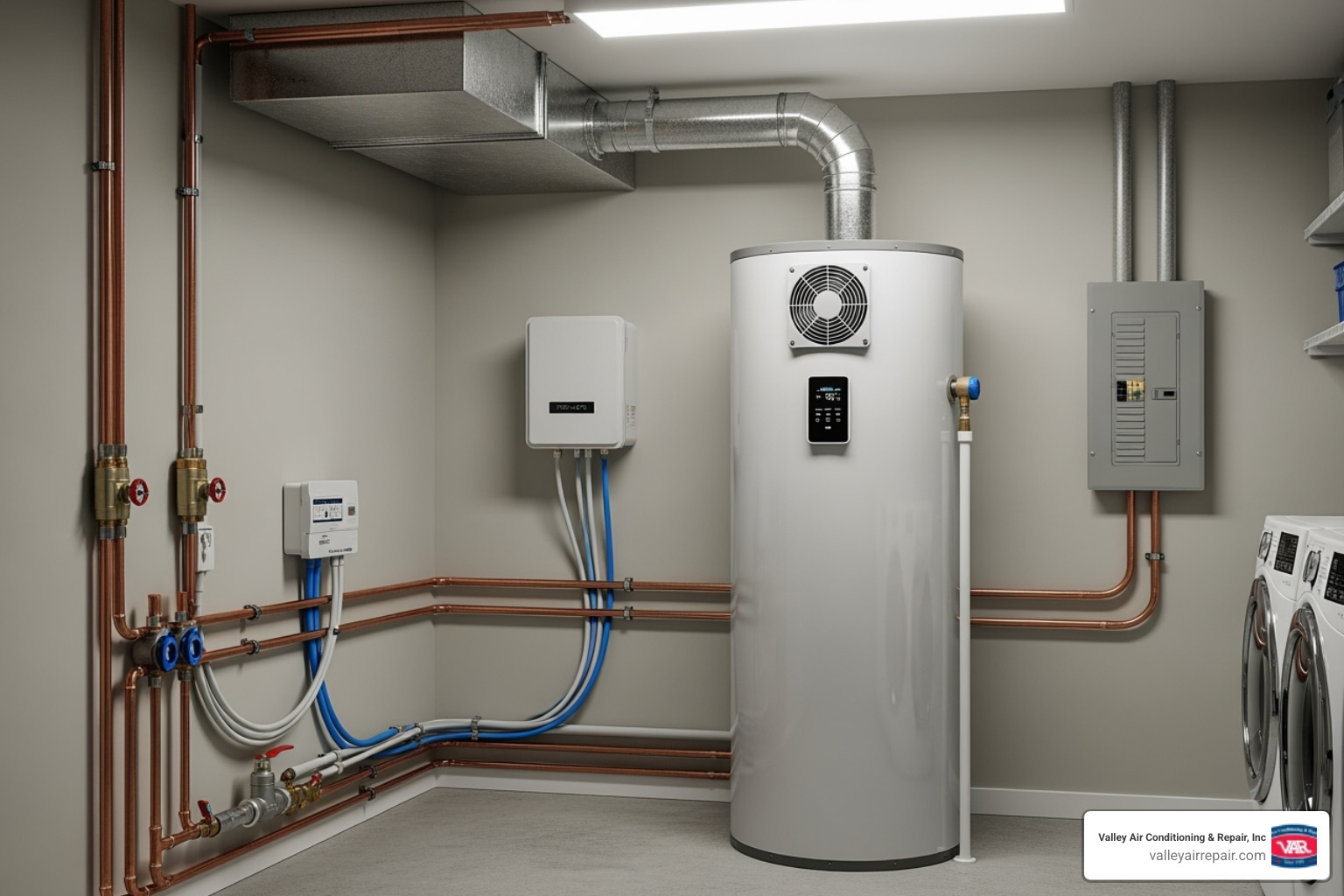
Heat Pump and Solar Water Heaters
Heat pump water heaters are like the overachievers of the water heating world. These clever systems (also called "hybrid" water heaters) don't actually create heat – they steal it from the air around them! Think of them as working like your refrigerator, but in reverse. Instead of removing heat from inside and dumping it outside, they grab heat from the surrounding air and transfer it to your water.
Here's the magic: a fan pulls warm air over special coils containing refrigerant. The refrigerant absorbs this heat and turns into gas, which then gets compressed to make it even hotter. Finally, this super-heated gas passes through coils in your water tank, warming your water before cooling back down to liquid and starting the cycle all over again.
The best part? Heat pump water heaters work great in all climates, even chilly ones, thanks to their hybrid design that can switch to traditional electric heating when needed. They also act as a bonus dehumidifier for your basement or utility room – talk about multitasking! While they need adequate space (about 700 cubic feet of surrounding air) and cost more upfront, they can save money water heater bills by using up to 50% less energy than standard electric models.
Solar water heating is about as eco-friendly as it gets – you're literally using sunshine to heat your water! These systems use roof-mounted collectors to soak up the sun's energy and transfer that heat to water in your storage tank. In most areas, a well-designed solar system can provide about 60% of your home's hot water needs throughout the year.
The technology is surprisingly straightforward. Solar collectors on your roof capture sunlight and heat either water directly or a heat-transfer fluid (like antifreeze) that then warms your water through a heat exchanger. Most systems in colder climates use this closed-loop design to prevent freezing issues during winter months.
While solar systems have the highest upfront cost, they typically raise water temperatures by 23 to 28°C and can save significant money on annual energy bills. Plus, they're built to last – many systems keep working efficiently for 25 years or more. Think of it as prepaying for decades of hot showers using free sunshine!
For homeowners interested in these advanced technologies, our team provides expert guidance and professional water heater replacement in Madera, CA. We'll help you determine which high-efficiency option works best for your home and budget.
Drain Water Heat Recovery Systems
Here's a brilliant piece of technology that most people have never heard of: drain water heat recovery systems. These clever devices capture the heat from hot water going down your drain and use it to warm up the cold water heading to your water heater. It's like giving your water heater a helpful head start, so it doesn't have to work nearly as hard.
The concept is beautifully simple. When you take a shower or run hot water for laundry, that warm water carries a lot of heat energy straight down the drain – what a waste! A drain water heat recovery system wraps a copper coil around your main cold water supply line, right where it passes by the warm drain water. As the hot water flows down the drain, it transfers its heat through the copper to the incoming cold water.
This means your water heater receives pre-warmed water instead of ice-cold water from the ground. Less heating required equals less energy used, and that translates to save money water heater costs of up to 25-30% on your water heating bills. The savings are especially impressive for families who take lots of showers, since showers provide that steady flow of hot drain water needed for maximum heat recovery.
The beauty of these systems is their universal compatibility – they work perfectly with any type of water heater, whether you have a traditional tank, tankless, heat pump, or solar system. They're also incredibly durable, often lasting more than 30 years with minimal maintenance required.
At Valley Air Conditioning & Repair, Inc., we've been helping homeowners optimize their energy use since 1970. Our comprehensive water heater services include evaluating whether your home is a good candidate for drain water heat recovery and providing professional installation to maximize your energy savings. These systems work particularly well for larger families or anyone who wants to squeeze every bit of efficiency out of their water heating system.
Frequently Asked Questions about Water Heater Savings
We get a lot of questions from homeowners who are tired of watching their energy bills climb higher each month. The good news is that many of these concerns have straightforward answers that can lead to real savings. Here are the questions we hear most often about making water heaters more efficient and affordable to run.
How much energy does a typical water heater use?
Here's something that might surprise you: water heating accounts for about 18% of a home's energy consumption, making it the second-largest expense after heating and cooling. To put that in perspective, your water heater uses more energy than your refrigerator, clothes washer, dishwasher, and dryer combined!
If you're living with an older, inefficient unit, you could be looking at even higher consumption - sometimes up to 19% of your total household energy use. That's a pretty big chunk of your monthly bill, which is exactly why learning how to save money water heater costs can make such a noticeable difference in your budget.
The silver lining? Because water heating represents such a significant portion of your energy use, even small improvements can lead to meaningful savings. Whether it's adjusting your thermostat or upgrading to a more efficient model, you're working with a system that has real potential to cut your costs.
What is the best temperature to set my water heater for savings?
Most households hit the sweet spot at 120°F (49°C) - it's like the Goldilocks temperature for water heaters. Not too hot, not too cold, but just right for both your wallet and your safety.
This temperature is hot enough to prevent nasty bacteria like Legionella from growing in your tank, but it's also much safer for your family. Water heated to 140°F can cause severe burns in just a few seconds, which is especially dangerous if you have young children or elderly family members at home.
Here's where the savings really add up: lowering your water heater temperature by just 10°F can save you 3% to 5% on your water heating costs annually. That might not sound like much, but it can add up to real money - often more than $50 per year just from this simple adjustment.
There's an added bonus too. Keeping your water heater at 120°F helps slow down mineral buildup and corrosion inside your tank and pipes. This means your system could last longer, saving you from premature replacement costs.
Should I turn my water heater off when I go on vacation?
Absolutely! For any trip longer than three days, adjusting your water heater can lead to noticeable savings. Think about it - why pay to keep 40 or 50 gallons of water hot when nobody's home to use it?
Most modern water heaters have a handy "vacation mode" setting that drops the temperature to its lowest safe level. If your unit doesn't have this feature, you can simply turn down the thermostat manually. For electric water heaters, some homeowners even switch off the circuit breaker entirely for maximum savings and peace of mind.
If you have a gas water heater and decide to turn it off completely, just make sure you're comfortable with safely relighting the pilot light when you return. When in doubt, stick with turning down the thermostat - you'll still save money water heater standby losses without any hassle when you get back from your trip.
This simple step ensures you're not throwing money away heating water that's just sitting there unused while you're enjoying your vacation.
Conclusion: Your Path to Lower Energy Bills
When it comes to cutting your water heating costs, you've got plenty of options – and that's the beauty of it! From the moment you finish reading this, you can walk over to your water heater and adjust the thermostat to 120°F. You can commit to taking shorter showers tomorrow morning. These aren't earth-shattering changes, but they're the kind of small habits that add up to real savings over time.
Maybe you're feeling more ambitious and ready to tackle a weekend DIY project. Wrapping your water heater in an insulation blanket or fixing that persistent drip can deliver immediate results. These smart upgrades don't require a huge investment, but they can reduce your energy bills month after month.
For those looking at the bigger picture, upgrading to an ENERGY STAR certified model – whether it's a space-saving tankless unit, an ultra-efficient heat pump system, or even a solar setup – can transform your energy costs for decades to come. Yes, there's an upfront investment, but the long-term savings often make it one of the smartest moves you can make for your home.
Don't forget about professional maintenance either. A well-maintained water heater runs more efficiently and lasts longer, which means more money stays in your pocket.
Here in the Valley, we understand that every household is different. What works perfectly for a family of two in Clovis might not be the best solution for a busy household of five in Fresno. That's where experience matters. Valley Air Conditioning & Repair, Inc. has been helping homeowners find the right water heating solutions since 1970. We've seen every type of system, every kind of challenge, and we've built our reputation on providing honest, expert advice that puts your needs first.
Whether you're in Biola, Caruthers, Clovis, Coarsegold, Del Rey, Dinuba, Fowler, Fresno, Friant, Kerman, Kingsburg, Laton, Lemoore, Madera Ranchos, Madera, O'Neals, Parlier, Reedley, Riverdale, Sanger, Selma, or Yosemite Lakes, we're here to help you save money water heater costs without sacrificing the comfort of reliable hot water.
Ready to explore the benefits of a high-efficiency tankless water heater? Contact us for professional installation in Fresno, CA. Let us help you find the perfect solution to keep you comfortable and your energy bills manageable – because nobody likes getting burned by their utility bill!




.webp)


